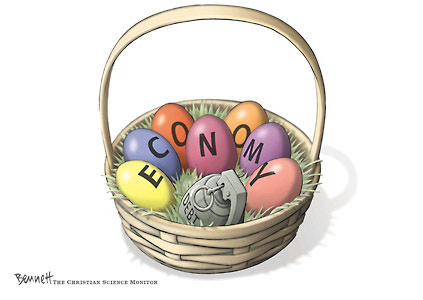Thursday, April 20, 2006
Casper the Friendly Market
 The invisible hand of the market is sometimes so faint it is nonexistent and that is why regulations are so often required to force / persuade / prod business to operate with 100% honesty to the client and society.
The invisible hand of the market is sometimes so faint it is nonexistent and that is why regulations are so often required to force / persuade / prod business to operate with 100% honesty to the client and society.A recent example drives home that point. A Saskatchewan man went to the local press about a pre-authorized charge that appeared on his credit card. Jay Salikin maxed out his MasterCard after buying $42 worth of gas at an automated Shell pump, even though he hadn't spent over his limit. How is that possible? One, he is clearly skating at the margain of his credit limit. Two, any MasterCard transaction ties up $110 worth of credit on top of the actual price of the gas and this is not an actual charge, simply a hold.
The problem is that, unlike rental car companies and hotels, Shell doesn't actually inform customers that this has happened. This can be a problem since those holds ususally linger around on a card for 3-4 days.
Canadian Petroleum Products Institute spokesperson Ted Stoner said gas stations are not telling customers, in part, because no one makes them.
"You know, if there's a requirement, they'd … take a look at it."
If there was a requirement the industry would do more than look at it, they would comply with it.
Comments:
<< Home
This guy has big problems. I dont think that another governement regulation is going to help his situation. Maybe if this joker starves for a couple of days it will encourage him to get his affairs in order, rather than allowing him another 40 bucks to prolong the agony. This is a prime example of the market looking after itself.
Hmm, that is a bit of an exaggeration - big problems are global warming and the HIV epidemic in Africa. A credit card dispute is annoyance.
How is this a prime example of the market looking after itself?
Post a Comment
How is this a prime example of the market looking after itself?
<< Home

